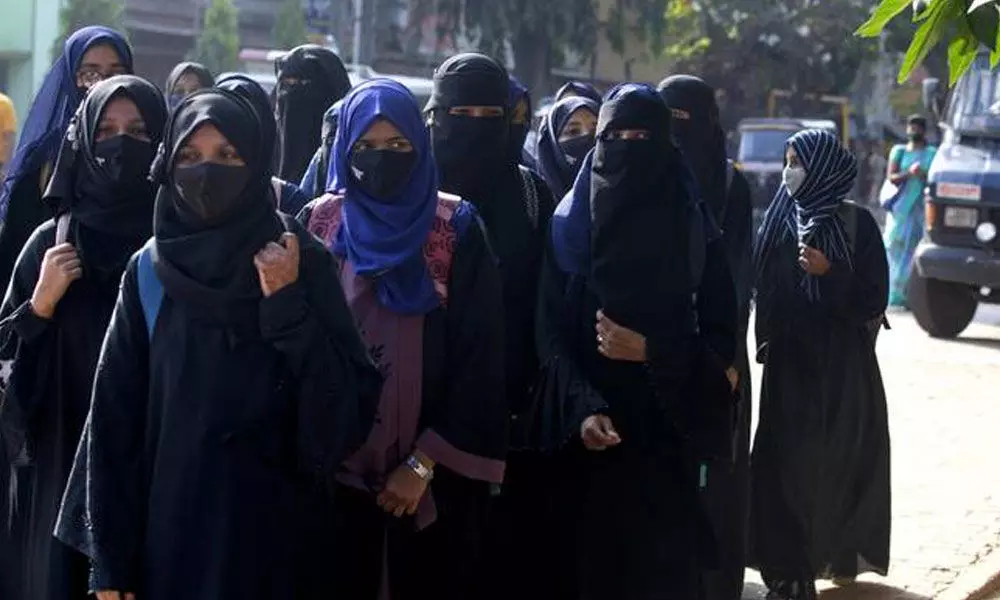The High Court Has Ruled Karnataka's Dress Code Policy Violating The Fundamental Rights

The High Court Has Ruled Karnataka's Dress Code Policy Violating The Fundamental Rights
- Justice Dixit stated that the court will have to rule on the matter quickly because it is not a pleasant sight to have students demonstrating on the streets every day.
- The judge claimed he found hundreds of messages from unknown numbers on rulings by various courts in his WhatsApp, pointing out how the topic is extensively circulated in many media channels.
The Karnataka High Court has begun hearing a group of petitions filed by Muslim females studying in government pre-university colleges in the Udupi region, challenging the restriction on wearing the hijab at college.
Justice Krishna S. Dixit, who heard the petitions, said to keep aside feelings, emotions, and proceed by the laws, the reasons, and according to the Constitution. If no solution can be found through the media, Justice Dixit stated that the court will have to rule on the matter quickly because it is not a pleasant sight to have students demonstrating on the streets every day.
The judge claimed he found hundreds of messages from unknown numbers on rulings by various courts in his WhatsApp, pointing out how the topic is extensively circulated in many media channels.
During the proceeding of the petitions, Advocate Mohammed Tahir urged that four petitioner students of Government PU College for Girls, Udupi, be temporarily permitted to join classes while wearing the dupatta, which seems to be a part of the college's uniform, in the manner of a head scarf. He also mentioned that let them enter as oy two months are left to end the academic session.
According to Advocate-General Prabhuling K. Navadgi, the matter is no longer limited to just four pupils, but has evolved into a broader legal issue about the right to wear hijab in educational institutions.
In context of the hijab controversy, the Court decided to first acknowledge a petition reported by Aishat Shifa and Thairin Begum of Government PU College, Kundapur, which queried the legality of the latest Government Order, issued on February 5, 2022, administering guidelines for a dress code for both government and private schools, as well as pre-university colleges in Karnataka.
Senior Advocate Devadatta Kamat, who is representing the petitioners, has stated that the petitioners are not referring to the putting of a burqa or veil, but rather a head scarf, and that wearing hijab is a essential religious practise provided in the Holy Quran.
Mr. Kamat contended that Sections 7 and 113 of the Karnataka Education Act, 1983, whereby the GO of February 5 was given, make no mention of a dress code, and so the government lacked the authority to impose one. He claimed that these pupils, who had been denied admission to the college for a few days, were permitted in on February 7, but were separated from other students and forced to sit in a different hall.
Meanwhile the High Court hears the legal arguments on the prohibition on wearing hijab at colleges, the court has asked the student community and the general public to maintain peace and calm in Karnataka.








